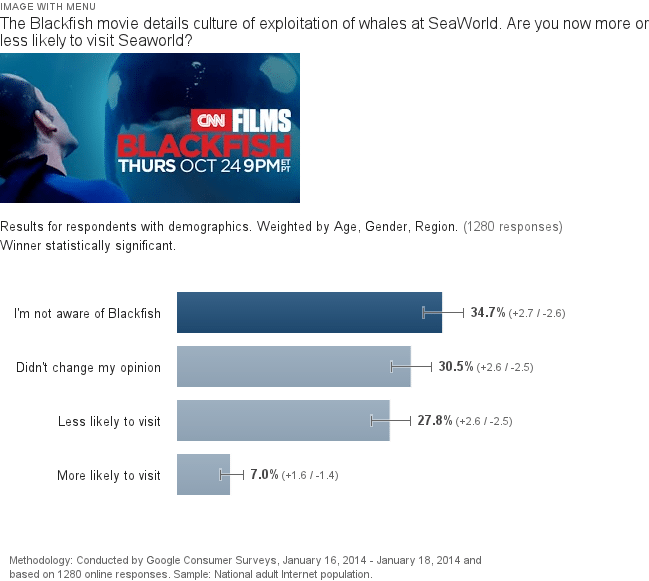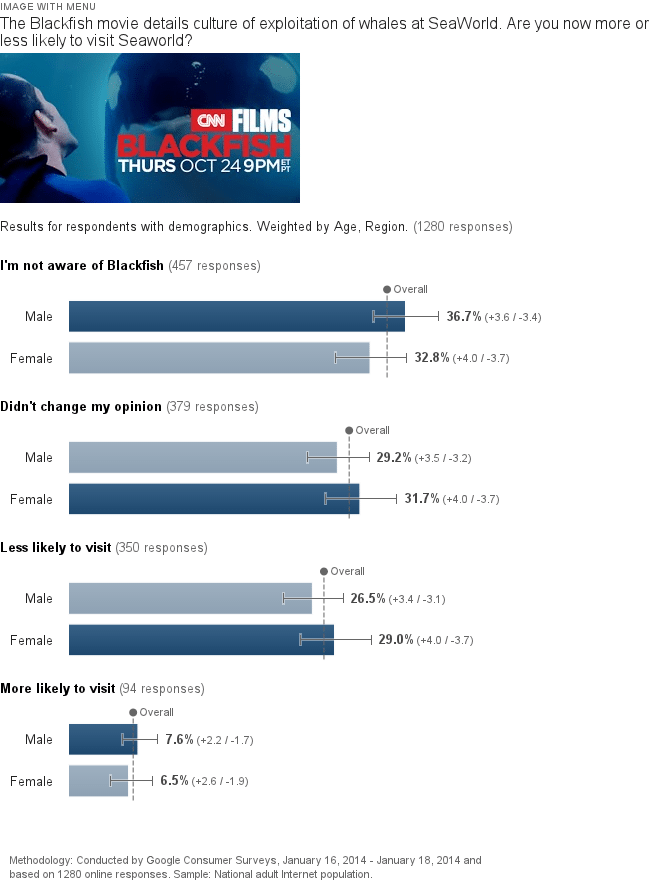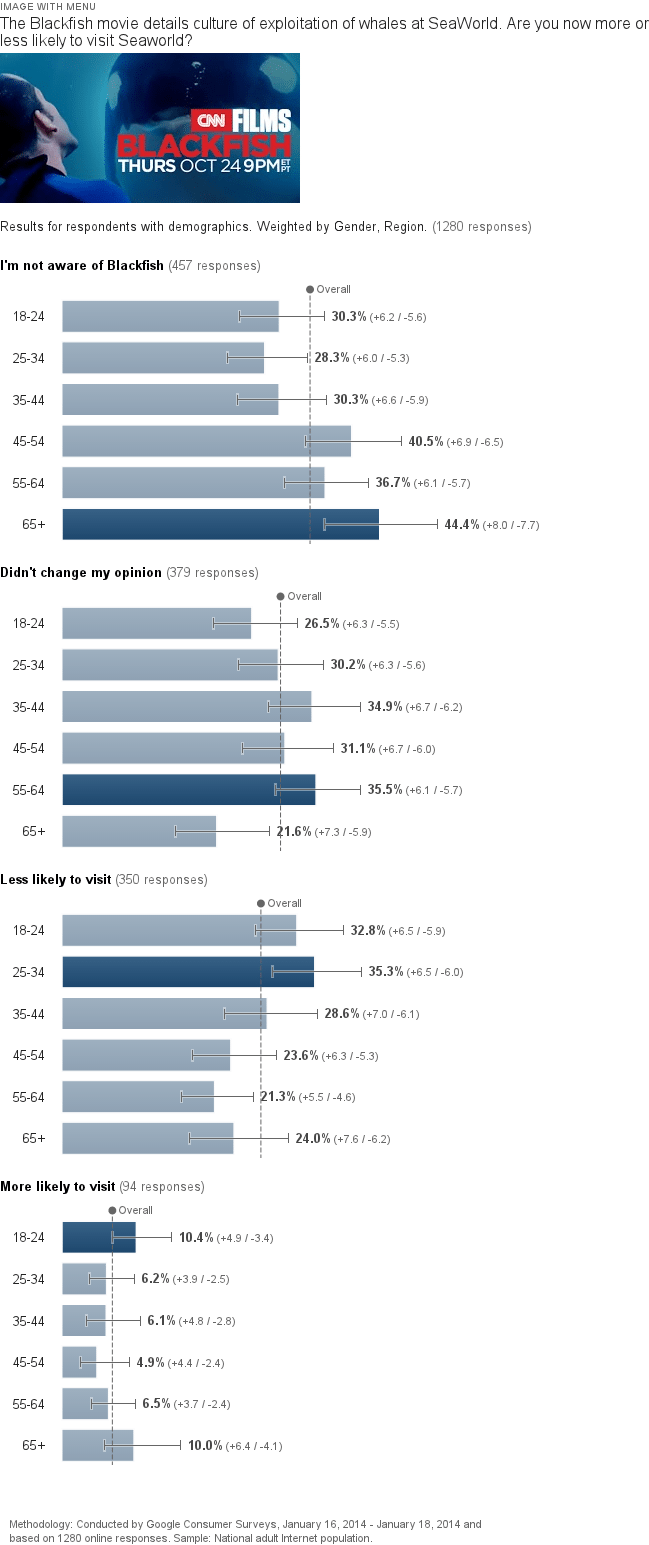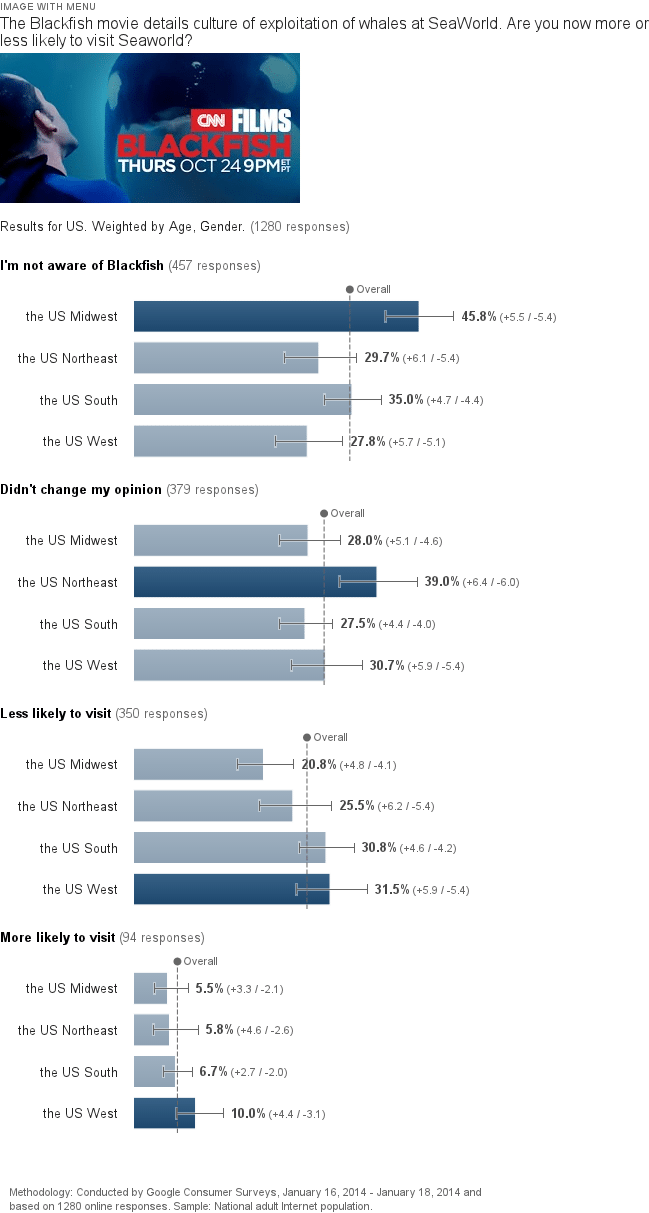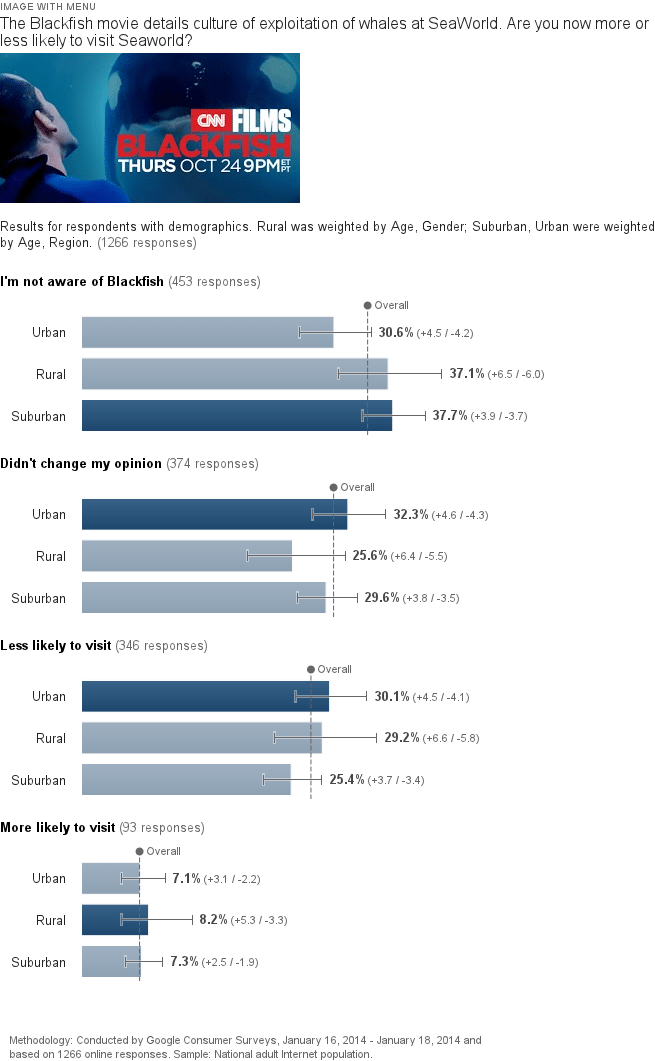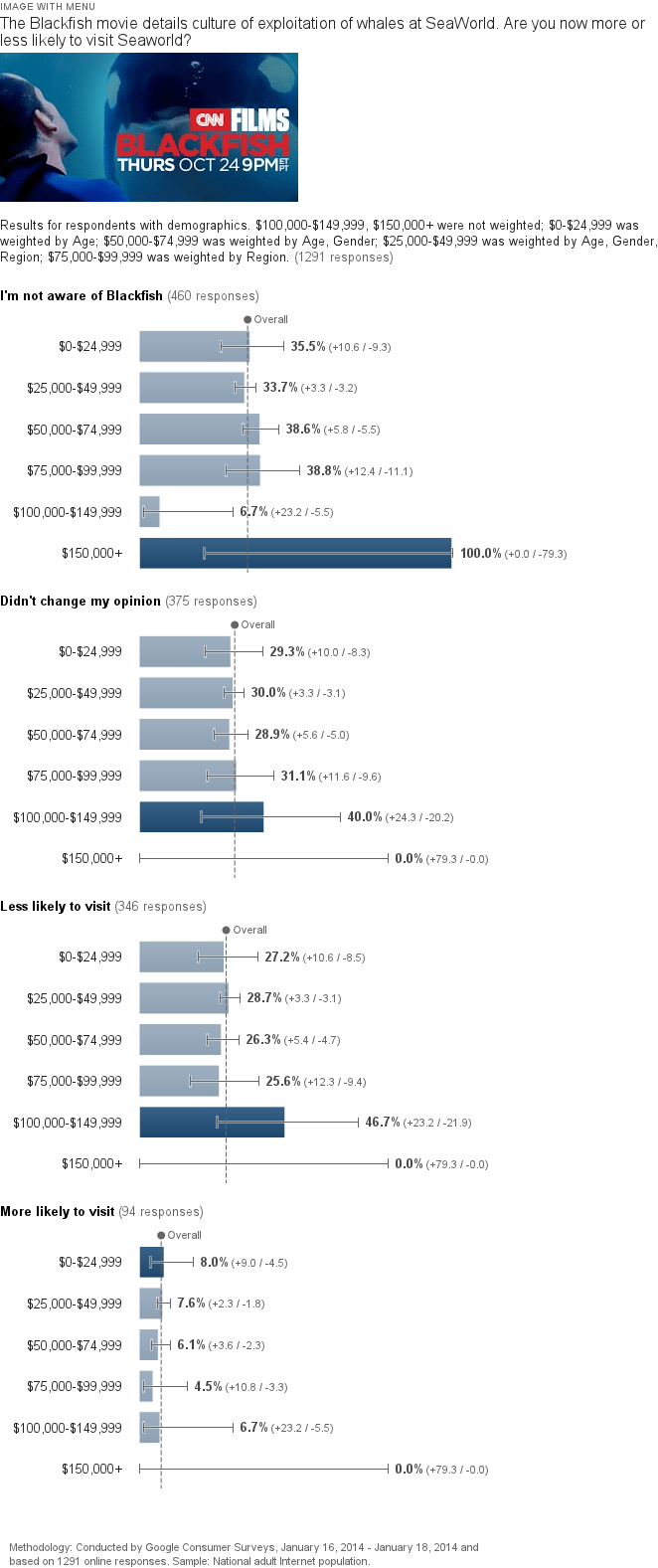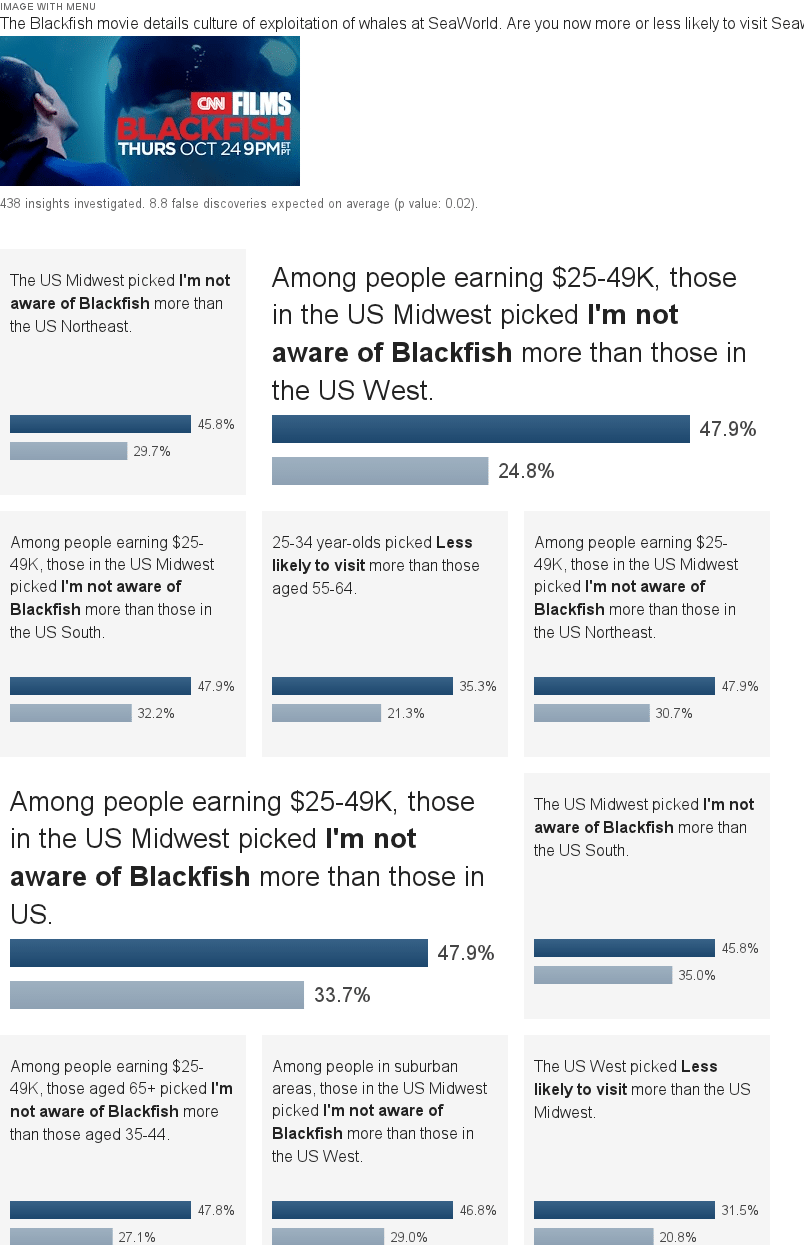Skift Asks: Post Blackfish, Are You Now More Or Less Likely To Visit SeaWorld?

Skift Take
Any big hopes that what the Oscar-winning 2009 documentary “The Cove” did for dolphin slaughter in Japan may happen again with CNN documentary “Blackfish” and SeaWorld are probably overblown, at least in the short term, according to a Skift survey.
While CNN-backed documentary Blackfish has been a big success as far as documentaries go and created a lot of awareness about the conditions of these whales in captivity, it hasn't yet affected SeaWorld's business, as we reported last week. In fact it expects to report 2013 revenue of about $1.46 billion for the year, which it says would mark an annual record.
And attitudes of American public seems to back up that confidence, according to the Google Consumer Survey we conducted on adult American population earlier this month.
The topline result: According to Skift's survey, about 75 percent of Americans are oblivious to the controversy, with only about 28 percent of Americans saying they are less likely to visit SeaWorld, post-Blackfish.
Of course another way of looking at the results is that one single documentary has been able to change the perceptions of slightly less than 1/3rd of Americans in one sweep.
The full results and breakdown by gender, age, geography and other criteria, below:
Important: This single-question survey — not served to Skift users — was administered to the U.S. internet population from Jan 16-18, 2014 through Google Consumer Surveys, with 1,502 responses (weighted down to 1280). The methodology is explained here. See previous Skift Asks here.
Topline result:
Gender breakdown: Almost equal male-female split.
Age-wise breakdown: Younger people are more aware, and less likely to visit, encouraging results for the people hoping to see results.
Region wise: Interesting U.S. West, where SeaWorld has its most business, are less likely to visit compared to other regions in U.S.
Urban-rural divide: More Urban audiences are aware of the controversy and are more swayed by it to not visit SeaWorld.
Salary-wise: No discernible trend.
Other insights: If the documentary makers and activists want to build up a larger movement, they need to start by raising awareness in America's heartland.
Related Reads:
- The New Documentary ‘Blackfish’ That’s About to Cause Trouble for SeaWorld
- SeaWorld Responds to Blackfish Documentary, Blasts CNN
- SeaWorld Expected to Report Record Revenue Despite ‘Blackfish’ Controversy
- SeaWorld Shares Jump Based on Blackfish Oscar Snub

